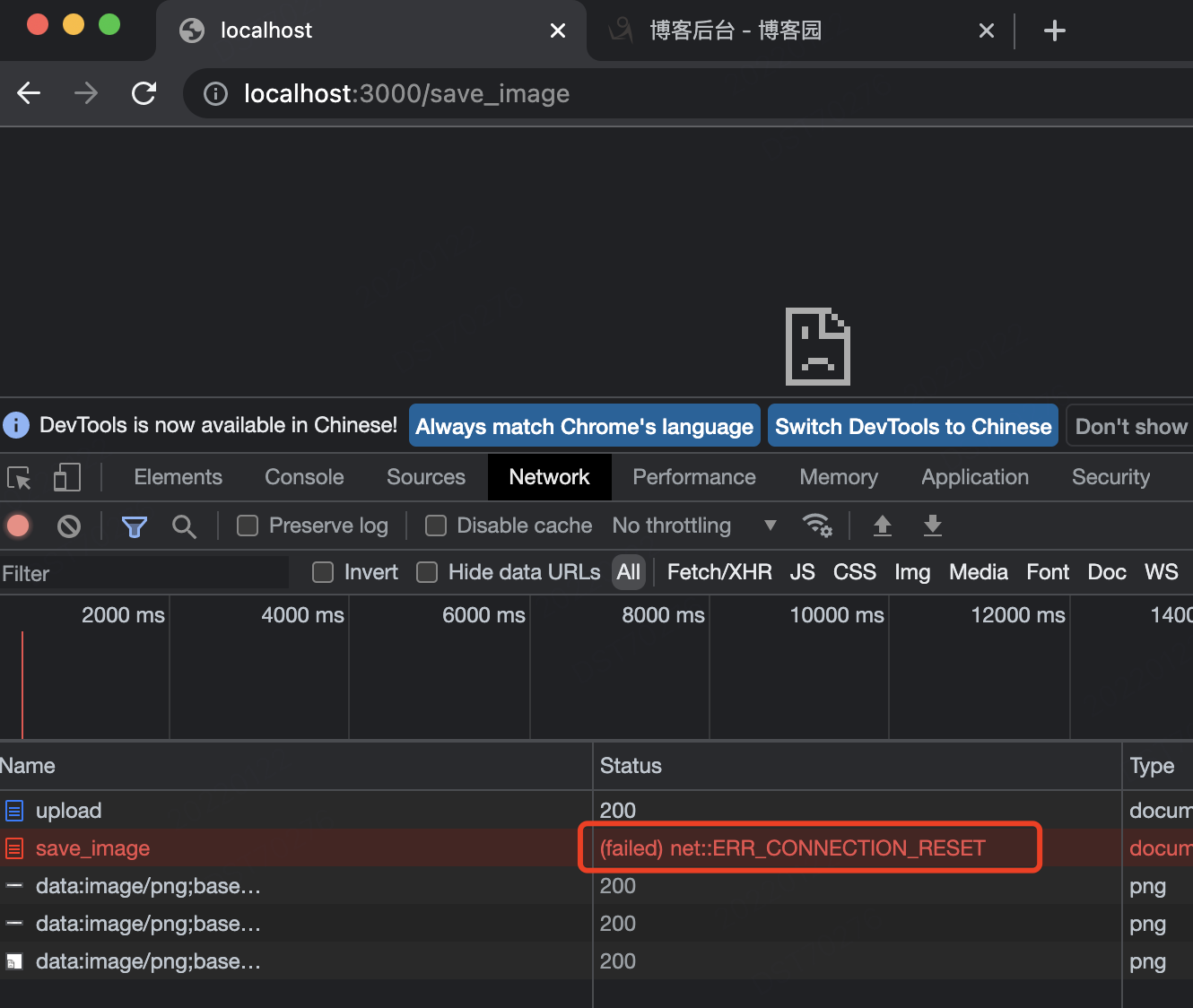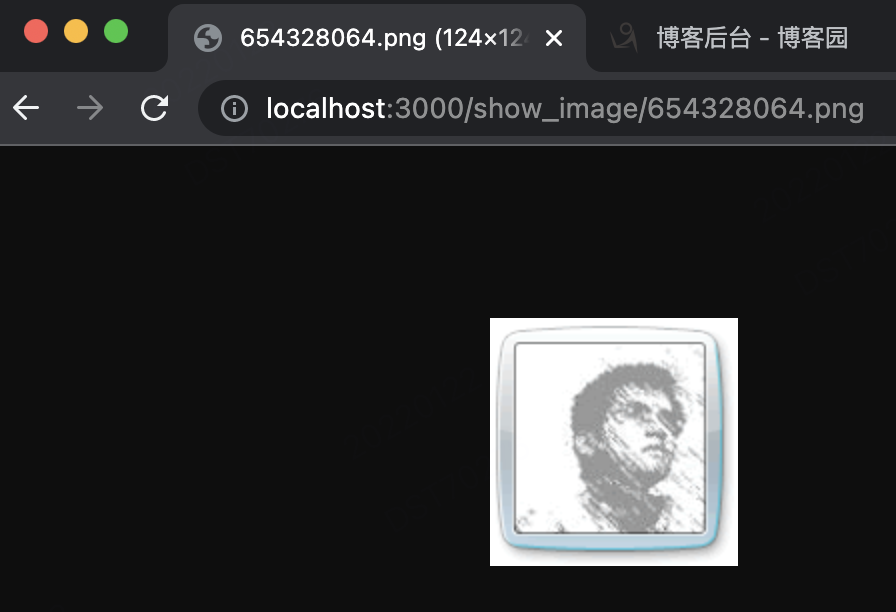接上一篇继续,上传文件是 web开发中的常用功能,本文将演示axum如何实现图片上传(注:其它类型的文件原理相同),一般来说要考虑以下几个因素:
1. 文件上传的大小限制
2. 文件上传的类型限制(仅限指定类型:比如图片)
3. 防止伪装mimetype进行攻击(比如:把.js文件改后缀变成.jpg伪装图片上传,早期有很多这类攻击)
另外,上传图片后,还可以让浏览器重定向到上传后的图片(当然,仅仅只是演示技术实现,实际应用中并非一定要这样)
先展示一个简单的上传文件的表单:
// 上传表单
async fn show_upload() -> Html<&'static str> {
Html(
r#"
<!doctype html>
<html>
<head>
<meta charset="utf-8">
<title>上传文件(仅支持图片上传)</title>
</head>
<body>
<form action="/save_image" method="post" enctype="multipart/form-data">
<label>
上传文件(仅支持图片上传):
<input type="file" name="file">
</label>
<button type="submit">上传文件</button>
</form>
</body>
</html>
"#,
)
}
上传后,用/save_image来处理图片上传
// 上传图片
async fn save_image(
ContentLengthLimit(mut multipart): ContentLengthLimit<
Multipart,
{
1024 * 1024 * 20 //20M
},
>,
) -> Result<(StatusCode, HeaderMap), String> {
if let Some(file) = multipart.next_field().await.unwrap() {
//文件类型
let content_type = file.content_type().unwrap().to_string();
//校验是否为图片(出于安全考虑)
if content_type.starts_with("image/") {
//根据文件类型生成随机文件名(出于安全考虑)
let rnd = (random::<f32>() * 1000000000 as f32) as i32;
//提取"/"的index位置
let index = content_type
.find("/")
.map(|i| i)
.unwrap_or(usize::max_value());
//文件扩展名
let mut ext_name = "xxx";
if index != usize::max_value() {
ext_name = &content_type[index + 1..];
}
//最终保存在服务器上的文件名
let save_filename = format!("{}/{}.{}", SAVE_FILE_BASE_PATH, rnd, ext_name);
//文件内容
let data = file.bytes().await.unwrap();
//辅助日志
println!("filename:{},content_type:{}", save_filename, content_type);
//保存上传的文件
tokio::fs::write(&save_filename, &data)
.await
.map_err(|err| err.to_string())?;
//上传成功后,显示上传后的图片
return redirect(format!("/show_image/{}.{}", rnd, ext_name)).await;
}
}
//正常情况,走不到这里来
println!("{}", "没有上传文件或文件格式不对");
//当上传的文件类型不对时,下面的重定向有时候会失败(感觉是axum的bug)
return redirect(format!("/upload")).await;
}
上面的代码,如果上传成功,将自动跳转到/show_image来展示图片:
/**
* 显示图片
*/
async fn show_image(Path(id): Path<String>) -> (HeaderMap, Vec<u8>) {
let index = id.find(".").map(|i| i).unwrap_or(usize::max_value());
//文件扩展名
let mut ext_name = "xxx";
if index != usize::max_value() {
ext_name = &id[index + 1..];
}
let content_type = format!("image/{}", ext_name);
let mut headers = HeaderMap::new();
headers.insert(
HeaderName::from_static("content-type"),
HeaderValue::from_str(&content_type).unwrap(),
);
let file_name = format!("{}/{}", SAVE_FILE_BASE_PATH, id);
(headers, read(&file_name).unwrap())
}
/**
* 重定向
*/
async fn redirect(path: String) -> Result<(StatusCode, HeaderMap), String> {
let mut headers = HeaderMap::new();
//重设LOCATION,跳到新页面
headers.insert(
axum::http::header::LOCATION,
HeaderValue::from_str(&path).unwrap(),
);
//302重定向
Ok((StatusCode::FOUND, headers))
}
最后是路由设置:
#[tokio::main]
async fn main() {
// Set the RUST_LOG, if it hasn't been explicitly defined
if std::env::var_os("RUST_LOG").is_none() {
std::env::set_var("RUST_LOG", "example_sse=debug,tower_http=debug")
}
tracing_subscriber::fmt::init();
// our router
let app = Router::new()
.route("/upload", get(show_upload))
.route("/save_image",post(save_image))
.route("/show_image/:id", get(show_image))
.layer(TraceLayer::new_for_http());
let addr = SocketAddr::from(([127, 0, 0, 1], 3000));
// run it with hyper on localhost:3000
axum::Server::bind(&addr)
.serve(app.into_make_service())
.await
.unwrap();
}
运行效果:
1. 初始上传表单:

2. 文件尺寸太大时

3.文件类型不对时
从输出日志上看
2022-01-23T03:56:33.381051Z DEBUG request{method=POST uri=/save_image version=HTTP/1.1}: tower_http::trace::on_request: started processing request
没有上传文件或文件格式不对
2022-01-23T03:56:33.381581Z DEBUG request{method=POST uri=/save_image version=HTTP/1.1}: tower_http::trace::on_response: finished processing request latency=0 ms status=302
已经正确处理,并发生了302重定向,但是浏览器里会报错connection_reset(不知道是不是axum的bug)

4. 成功上传后

最后附上完整代码:
cargo.xml
[package]
name = "uploadfile"
version = "0.1.0"
edition = "2021"
# See more keys and their definitions at https://doc.rust-lang.org/cargo/reference/manifest.html
[dependencies]
axum = {version = "0.4.3", features = ["multipart","headers"] }
tokio = { version = "1.0", features = ["full"]}
rand = "0.7.3"
tower-http = { version = "0.2.0", features = ["fs", "trace"] }
futures = "0.3"
tokio-stream = "0.1"
headers = "0.3"
tracing = "0.1"
tracing-subscriber = { version="0.3", features = ["env-filter"] }
main.rs
use axum::{
extract::{ContentLengthLimit, Multipart, Path},
http::header::{HeaderMap, HeaderName, HeaderValue},
http::StatusCode,
response::Html,
routing::{get,post},
Router,
};
use rand::prelude::random;
use std::fs::read;
use std::net::SocketAddr;
use tower_http::trace::TraceLayer;
const SAVE_FILE_BASE_PATH: &str = "/Users/jimmy/Downloads/upload";
// 上传表单
async fn show_upload() -> Html<&'static str> {
Html(
r#"
<!doctype html>
<html>
<head>
<meta charset="utf-8">
<title>上传文件(仅支持图片上传)</title>
</head>
<body>
<form action="/save_image" method="post" enctype="multipart/form-data">
<label>
上传文件(仅支持图片上传):
<input type="file" name="file">
</label>
<button type="submit">上传文件</button>
</form>
</body>
</html>
"#,
)
}
// 上传图片
async fn save_image(
ContentLengthLimit(mut multipart): ContentLengthLimit<
Multipart,
{
1024 * 1024 * 20 //20M
},
>,
) -> Result<(StatusCode, HeaderMap), String> {
if let Some(file) = multipart.next_field().await.unwrap() {
//文件类型
let content_type = file.content_type().unwrap().to_string();
//校验是否为图片(出于安全考虑)
if content_type.starts_with("image/") {
//根据文件类型生成随机文件名(出于安全考虑)
let rnd = (random::<f32>() * 1000000000 as f32) as i32;
//提取"/"的index位置
let index = content_type
.find("/")
.map(|i| i)
.unwrap_or(usize::max_value());
//文件扩展名
let mut ext_name = "xxx";
if index != usize::max_value() {
ext_name = &content_type[index + 1..];
}
//最终保存在服务器上的文件名
let save_filename = format!("{}/{}.{}", SAVE_FILE_BASE_PATH, rnd, ext_name);
//文件内容
let data = file.bytes().await.unwrap();
//辅助日志
println!("filename:{},content_type:{}", save_filename, content_type);
//保存上传的文件
tokio::fs::write(&save_filename, &data)
.await
.map_err(|err| err.to_string())?;
//上传成功后,显示上传后的图片
return redirect(format!("/show_image/{}.{}", rnd, ext_name)).await;
}
}
//正常情况,走不到这里来
println!("{}", "没有上传文件或文件格式不对");
//当上传的文件类型不对时,下面的重定向有时候会失败(感觉是axum的bug)
return redirect(format!("/upload")).await;
}
/**
* 显示图片
*/
async fn show_image(Path(id): Path<String>) -> (HeaderMap, Vec<u8>) {
let index = id.find(".").map(|i| i).unwrap_or(usize::max_value());
//文件扩展名
let mut ext_name = "xxx";
if index != usize::max_value() {
ext_name = &id[index + 1..];
}
let content_type = format!("image/{}", ext_name);
let mut headers = HeaderMap::new();
headers.insert(
HeaderName::from_static("content-type"),
HeaderValue::from_str(&content_type).unwrap(),
);
let file_name = format!("{}/{}", SAVE_FILE_BASE_PATH, id);
(headers, read(&file_name).unwrap())
}
/**
* 重定向
*/
async fn redirect(path: String) -> Result<(StatusCode, HeaderMap), String> {
let mut headers = HeaderMap::new();
//重设LOCATION,跳到新页面
headers.insert(
axum::http::header::LOCATION,
HeaderValue::from_str(&path).unwrap(),
);
//302重定向
Ok((StatusCode::FOUND, headers))
}
#[tokio::main]
async fn main() {
// Set the RUST_LOG, if it hasn't been explicitly defined
if std::env::var_os("RUST_LOG").is_none() {
std::env::set_var("RUST_LOG", "example_sse=debug,tower_http=debug")
}
tracing_subscriber::fmt::init();
// our router
let app = Router::new()
.route("/upload", get(show_upload))
.route("/save_image",post(save_image))
.route("/show_image/:id", get(show_image))
.layer(TraceLayer::new_for_http());
let addr = SocketAddr::from(([127, 0, 0, 1], 3000));
// run it with hyper on localhost:3000
axum::Server::bind(&addr)
.serve(app.into_make_service())
.await
.unwrap();
}